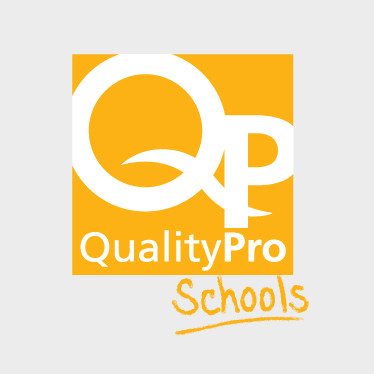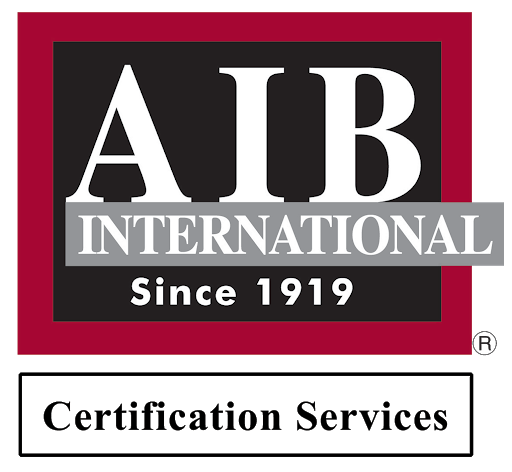Integrated Pest Management (IPM) Solutions for Your Business
What is IPM?
Integrated pest management (IPM) is an extremely thorough pest control process focused on using various methods that do not require chemical treatments. Too many companies rely on pesticides, poisons and other hazardous materials to exterminate pests, but this can be unsafe in many organizations and business settings. That’s why our team uses decision-based pest control services to create custom plans to keep pests out while keeping the people inside safe.
This is what makes IPM so different from the traditional pest control services approach. Normally, pest control companies use chemicals to treat the entire area. Our goal is not to eliminate insecticide use, but to use them as part of our toolbox of options. Our technicians may determine an insecticide treatment is the best choice, although it is typically the last option we consider. Our certified Des Moines pest control team uses several methods to determine the best strategies to exterminate bugs.
Checking for Signs of Pest Activity During IPM Visits
Our commercial pest control technicians carefully inspect critical pest prone areas to determine if there are current pest issues. We look not only for the pests, but also for signs of pest activity such as droppings, gnaw marks, webbing, and more.
For example, if house flies are showing up in a commercial kitchen during an integrated pest management inspection, we won’t just spray insecticides to temporarily control them - we look for the root cause. Many times a flying pest problem is related to a loading dock door that has been propped open during a delivery, or something similar. To prevent this in the future, we may install a flying insect light trap near the loading dock door to attract and intercept the flies before they spread into the kitchen and dining areas. We would also take time to educate the customer on the importance of closing the doors as soon as possible after a delivery.
Traps Used for Integrated Pest Management
Insect and rodent traps provide an excellent way for us to assess the type of pest we’re dealing with, zero in on where to focus our efforts and diagnose the severity of the infestation. If the only insect activity is found in a trap near a drain, we will focus on cleaning the drain with a biological product to eliminate this breeding area.
Structural and Property Inspections
During our integrated pest management visits, we regularly conduct interior and exterior inspections of the structural integrity of the building. Many times our strategy is focused on sealing entry holes that are permitting pest entry. Typical entry points for insects are gaps under doors, space around pipes that lead to the exterior and missing screens on doors and windows. Simply preventing pests from entering your property can quickly stop a pest problem without using any pesticides. This is the main difference with IPM - we are going after the root cause of the pest problem, not just treating the symptoms.
IPM Best Practices for Your Team
Cultural practices play a big part in our IPM strategy. Our technician looks for common business practices that may be prompting pest activity. Examples of business cultural practices that lead to pest problems are:
- Overwatering interior plants which can lead to a fungus gnat population.
- Propping doors open during remodeling which allows insects and mice to freely enter.
- Leaving trash and dirty dishes on the counters is very attractive to pests.
When our technicians see these types of practices occurring, they will include recommendations in their report to make changes, such as implementing policies to prevent pest activity from occurring. If necessary, our team will set up training sessions with the custodial staff to review how to report pest issues, basic insect identification and best practices for pest prevention.
Advanced Integrated Pest Management by Certified Technicians
Our IPM team customizes plans to fit the specific regulations of each industry we work with. Preferred Pest Control technicians are certified in some of the most strict practices.
Quality Pro for Schools

Preferred Pest Control is a QualityPro Accredited pest management company, which demonstrates our promise to perform exceptional service on every job. In addition, we’ve also earned the QualityPro for Schools certification that requires us to adhere to IPM methods. Through additional testing and training, our company shows its commitment to excellence as it relates to service in schools and educational facilities. Our customers feel confident that the technician sent to service their school is well qualified and equipped to provide a comprehensive service in a sensitive environment.
American Institute of Bakers (AIB)

AIB certification is the gold standard certification for performing integrated pest management work in food manufacturing facilities and maintains the most strict standards for IPM. By achieving this status, we are certified to perform our work safely in the critical area of food production. IPM is at the core of every customer we serve in the food production arena. By achieving our American Institute of Bakers certification, we are qualified to perform IPM works in the following food safety sensitive environments:
- Grain handling facilities
- Food contact packing facilities
- Beverage production
- Food distribution
- Fresh cut produce facilities
Our IPM Experts Work With Your Team for the Best Results
When you choose Preferred Pest Control to take care of your integrated pest management needs, we’ll communicate any issues with your business and provide plenty of resources for your team. Before our contract begins, we will schedule multiple meetings to ensure we answer all questions about integrated pest management, make sure you are a part of the decision process, check that all rules and regulations are being met and provide a smooth transition into our pest control services.
Among the resources we’ll supply for your business is a log book at our initial visit. This contains Preferred Pest Control’s contact information, current copies of our business license, certificate of insurance and all certified applicator licenses, a unique IPM plan for your business and log reports from our pest control services.
At the end of every service, we email our clients a detailed report. We include information about any pest control methods used and reassurance that every trap was checked during our visit. Each traps contains a barcode that is scanned by our technician and the results are printed on the report along with the following insights:
- Status of every trap in the facility including the condition of the trap.
- Pests and number of pests caught.
- Affirmation that the trap was cleaned by our technician and the glueboard inside of the trap was replaced.
- Pesticides applied (if any)
- Sanitation deficiencies observed and corrective recommendations.
- Structural deficiencies observed and corrective recommendations.
Custom Pest Control Services for Every Type of Business
Warehouses
- Inspections for sanitation, structural and cultural deficiencies that are conducive to pest activity.
- Multi catch rodent stations around the interior perimeter of the facility.
- Tamper-resistant rodent bait stations are installed around the exterior perimeter of the structure to prevent rodent entry.
- Insect light traps are installed and maintained in loading dock areas to prevent flies from entering the facility and preventing the spread of contaminants to products.
Schools & Universities
- Installation and monitoring of insect sticky traps in areas where pest activity is likely to occur such as kitchens, restrooms, janitor closets, boiler rooms, concessions areas, etc.
- Installation and monitoring of rodent multi- catch stations in areas where rodents are most likely to be such as kitchens, food storage areas, loading docks, etc.
- Fungus gnat control is performed in areas such as indoor swimming pools, drains and potted plants. Fungus gnat control is performed with naturally occurring biological control agents.
- Inspections for sanitation, structural and cultural deficiencies that are conducive to pest activity.
- Development and implementation of a bed bug policy action plan.
Hospitals & Clinics
- Installation and monitoring of insect sticky traps in areas where pest activity is likely to occur such as kitchens, restrooms, janitor closets, boiler rooms, concessions areas, etc.
- Installation and monitoring of rodent multi- catch stations in areas where rodents are most likely to be such as kitchens, food storage areas, loading docks, etc.
- Fungus gnat control is performed in areas such as indoor drains and potted plants. Fungus gnat control is performed with naturally occurring biological control agents.
- Inspections for sanitation, structural and cultural deficiencies that are conducive to pest activity.
- Development and implementation of a bed bug policy action plan - this could include regular inspections using our certified Bed Bug Detecting Canines and treating with heat and/or steam to eradicate the bed bugs and their eggs.
- Special training for technicians to adhere to HIPPA laws while treating.
- Availability for emergency service treatments after hours.
Apartments & Condominiums
- Initially we install insect monitor traps in every apartment. We inspect these traps on a regular basis for pest activity. If pests are discovered in the traps or other areas of the apartment, corrective action will be taken by using an IPM technique such as applying a biological product, vacuuming, sealing with silicone caulking, or chemically treating.
- Inspections are also made in hallways, boiler rooms, entryways, etc. If pest activity within an apartment is observed, proper action will be taken to eliminate the pest population according to IPM protocol.
- Development and implementation of a bed bug policy action plan. This could include regular inspections using our certified Bed Bug Detecting Canines and treating with heat and/or steam to eradicate the bed bugs and their eggs.
Hotels & Motels
- Initially we install insect monitor traps in every guest room. We inspect these traps on a regular basis for pest activity. If pests are discovered in the traps or other areas of the apartment, corrective action will be taken by using an IPM technique such as applying a biological product, vacuuming, sealing with silicone caulking, or chemically treating.
- Inspections for insects and mice are also made in hallways, boiler rooms, entryways, etc. If pest activity is observed, proper action will be taken to eliminate the pest population according to IPM protocol.
- Development and implementation of a bed bug policy action plan. This could include regular inspections using our certified Bed Bug Detecting Canines and treating with heat and/or steam to eradicate the bed bugs and their eggs.
Contact Preferred Pest Control for Advanced Integrated Pest Management (IPM)
To ensure your business is in good hands and will be protected from any pest problems, contact the IPM professionals at Preferred Pest Control! We take pride in performing exceptional pest control services and want to help your business maintain its reputation by staying pest free. Schedule an appointment to set up a consultation or contact our office today at (515) 276-7277.